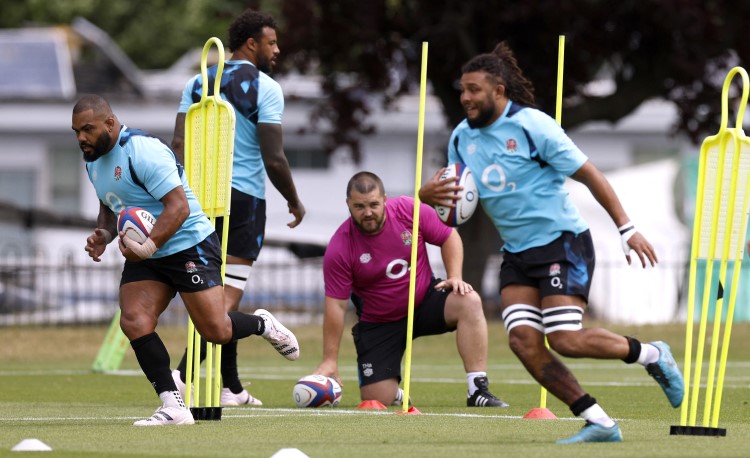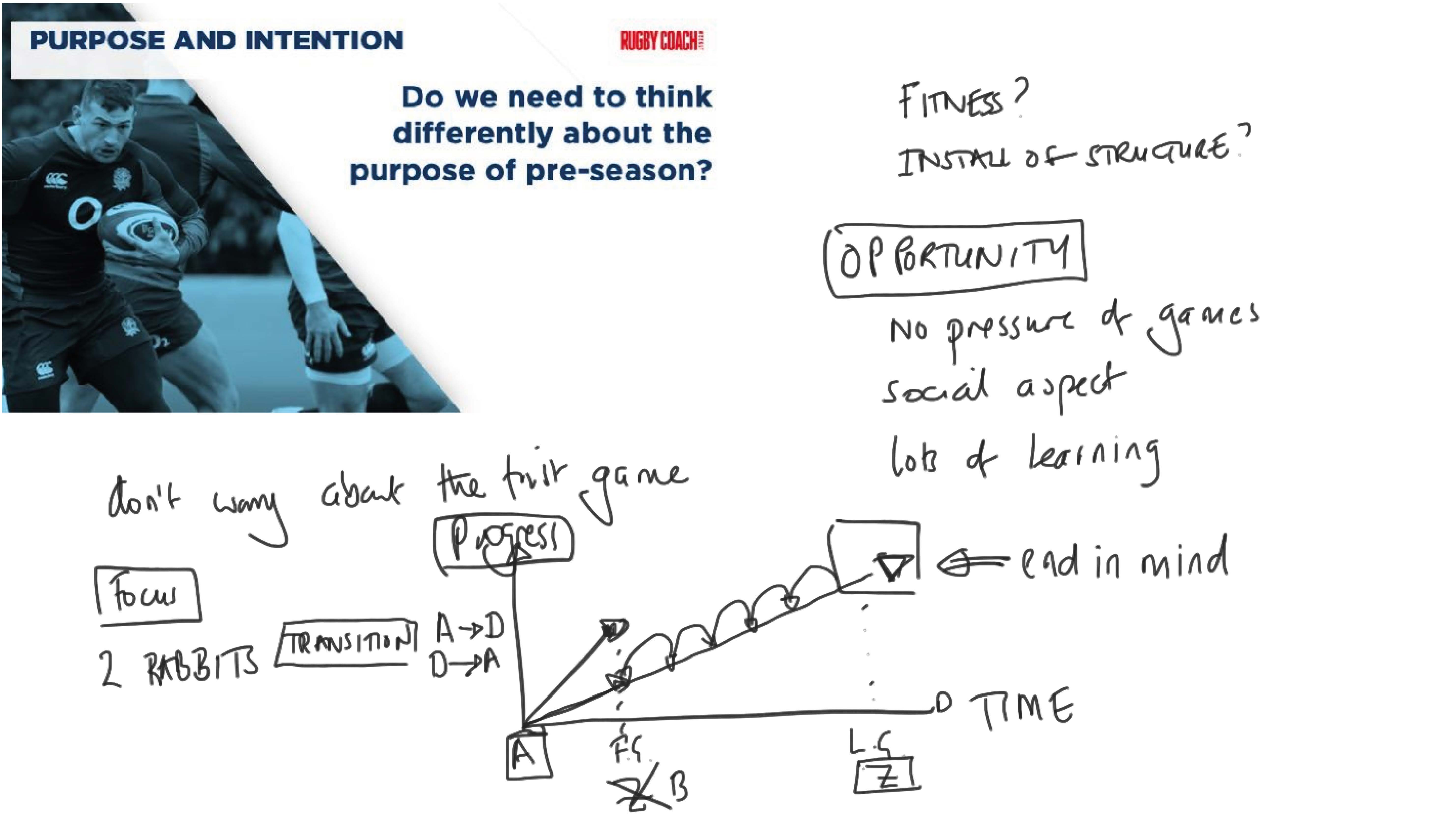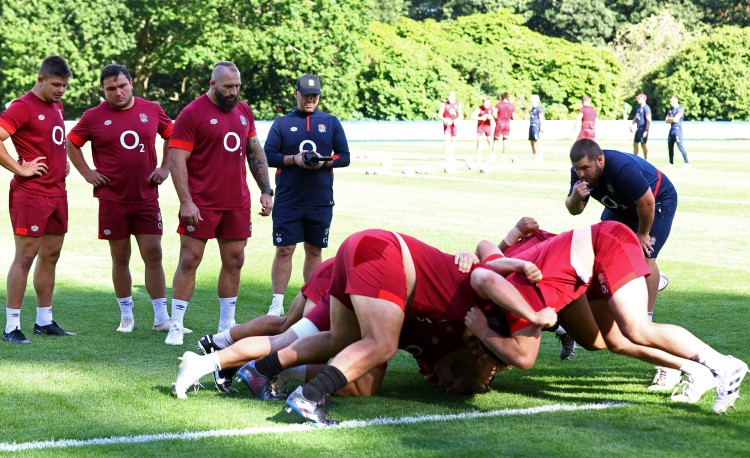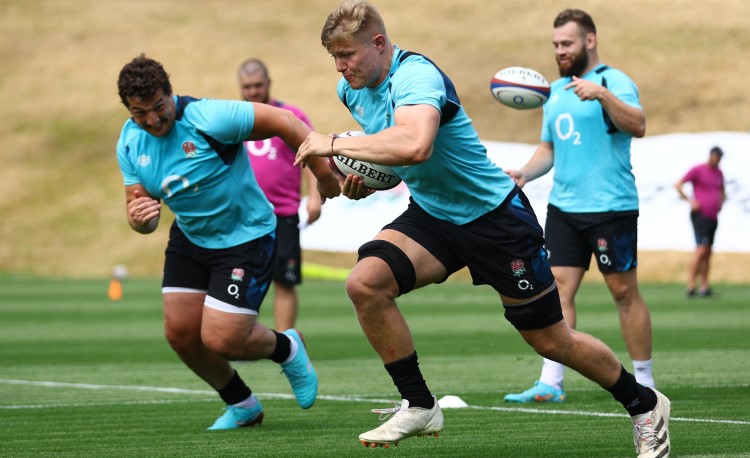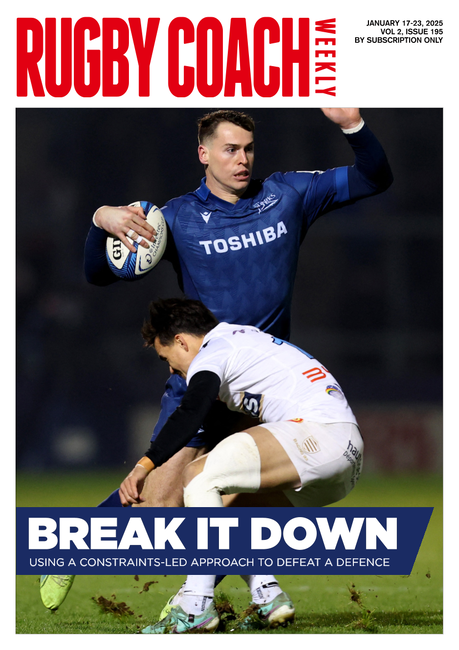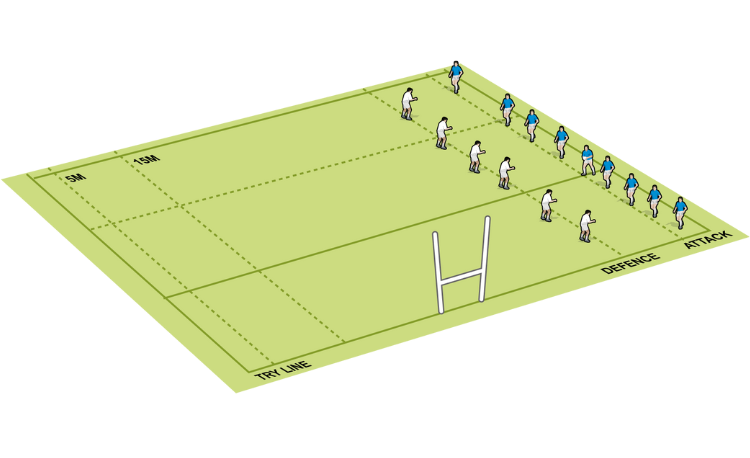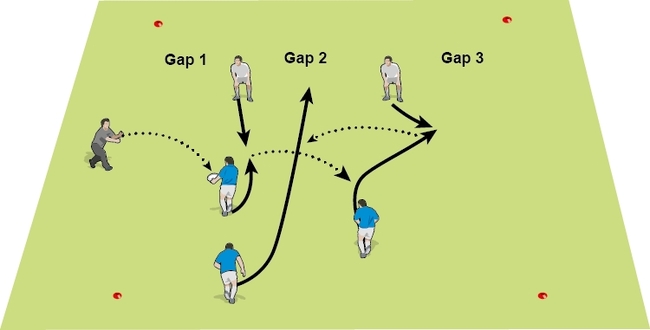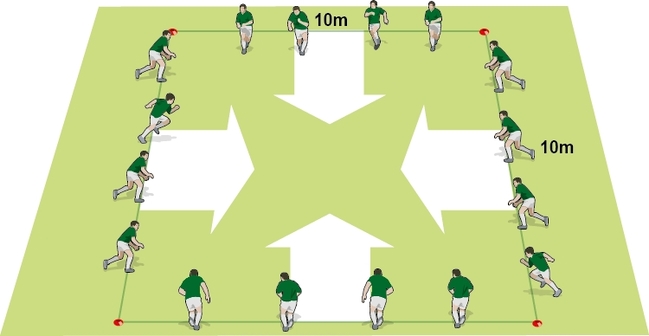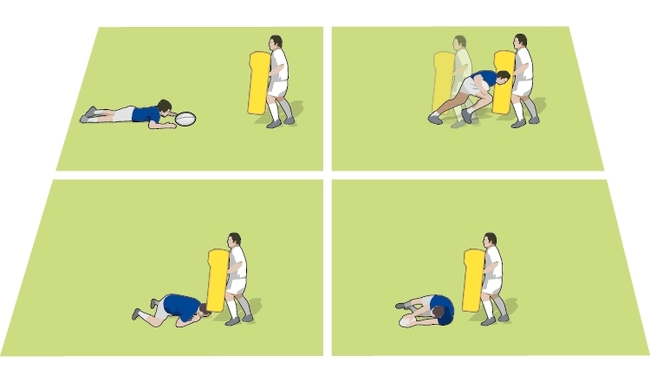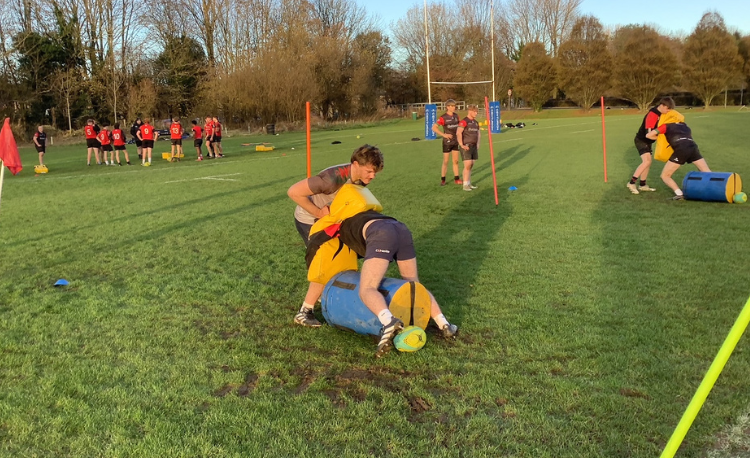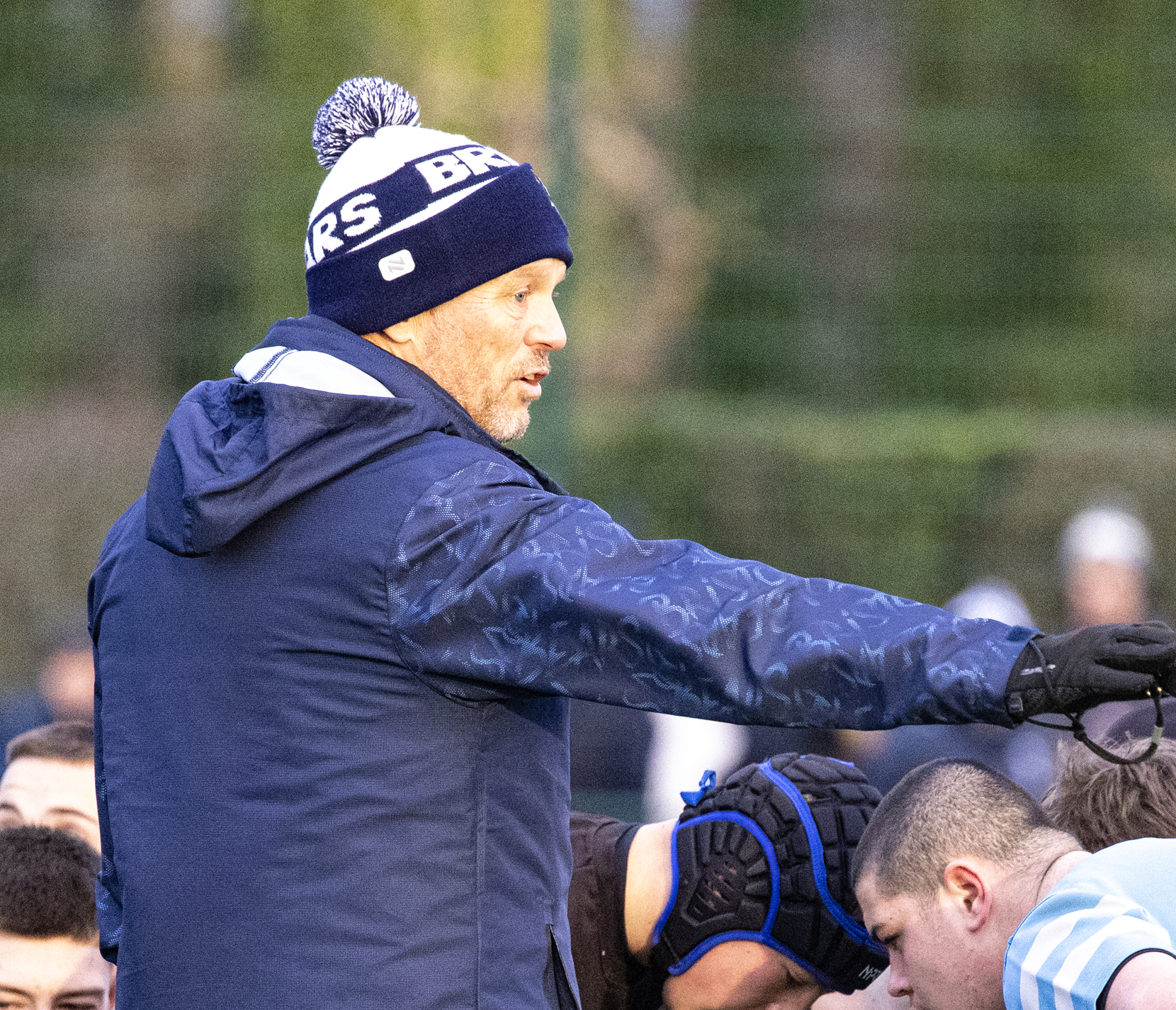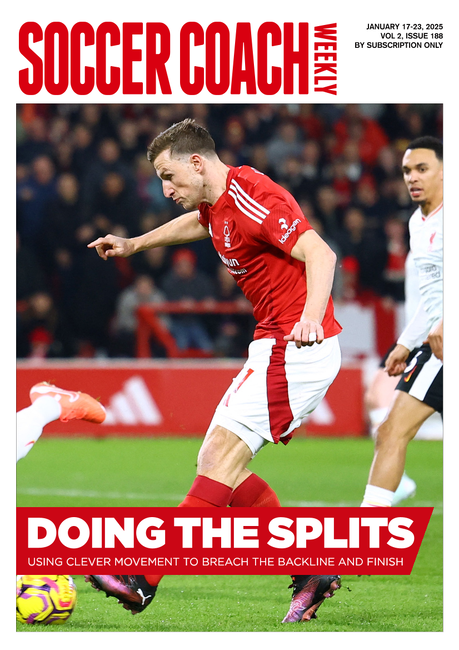Develop robustness in training sessions
DAN COX, head coach of English fourth-tier side Old Redcliffians, explains how he focuses on players’ ability to repeat certain actions without breaking down.
Using pre-season as a starting point, our training has been focused on building a base of contact skills and conditioning to ensure they stand less chance of breaking down during the season.
There is a need in rugby for our players to repeat actions in physically demanding and adverse conditions consistently.
Leagues such as National 2 West, which Old Redcliffians compete in, can often be very physical and attritional. Ensuring our players can bounce back and repeat efforts is key for success.
Be ready to solve problems
At any level, rugby and, in particular, coaching have a consistent set of problems to solve. But that is hard when you cannot concentrate due to a lack of conditioning.
While the opposition will undoubtedly be forcing us into places we don’t want to be, if we can take an advantage, we want our players to make good decisions and execute under pressure.
There’s no point ticking off skills and plays in training if we can’t replicate them effectively under the pressures of the game itself.
Intention is everything. While this can vary from a technical, tactical, psychological and cognitive standpoint, it is probably the same from a physical standpoint at whatever level you coach.
You develop robustness in two ways:
- By helping players achieve a level of conditioning to excel in match conditions and reduce the risk of injury
- By developing the ability to overcome adverse and challenging conditions
Real rugby conditioning
Since rugby involves frequent changes in direction and physical contact, we must replicate this in our training sessions.
We need to imitate a variety of aspects in our time-limited training sessions:
- Ball-in-play time (the game)
- Lots of opportunities to touch the ball and make contextual decisions
- A shared tactical model
- Contact-based work, including the technical and conditioning elements
- Problem-solving and cognitive challenge
- Injury prevention
This is where coaches can be ’geeky’ about their practice design; developing sessions that are fast-moving, with varied intensity; game-like scenarios; and some challenging conditioning-based activities.
If we want rugby-specific robustness, 60 minutes of circuits or straight-line running does not cut the mustard.
Mental and emotional fitness
Are our sessions supporting psychological development? After all, robustness is not only physical but mental.
It is no secret that there are some challenging times when competing, like going down by two scores, missing an important kick at goal or playing with 12.
Our sessions can replicate these challenges in game-based scenarios. It could be that a side is asked to consistently defend for a period of time with 13 players after a particularly challenging five-minute contact conditioning block.
We should also be more comfortable that they may not find answers to that problem there and then.
Failing in week one could be the hook they need to find a solution to the problem in weeks two, three and so on.
Think of it like a box set: That struggle or ‘cliff-hanger’ could be what keeps them intrigued and curious for the next session.
Related Files
Robust rugby
In a game of rugby, we are consistently up, down, changing direction and wrestling. We have tried to make our sessions have as much of that as possible.
For example, you might play a game with lots of straight-line running to start. We would then move into some contact conditioning.
Players might drive low into a tackle pad, land on the ground, then get up and move to the next part of the exercise, which might be something physical or a handling decision.
The key here is that the players are landing on the ground after contact and then having to get up.
Finally, the next game would have lots of changes of direction.
Robust, mentally
We want a supportive environment - players need to feel they are psychologically safe.
This doesn’t mean we are soft on the players. They need to be pushed to be in situations where they might make mistakes.
We want players to put themselves into challenging decision-making roles, solve problems, reflect on their errors and then go again.
In a hard-fought game, they will be under pressure and won’t be able to execute accurately every time.
How they react to this can be partially replicated in training.
Newsletter Sign Up
Coaches Testimonials

Gerald Kearney, Downtown Las Vegas Soccer Club

Paul Butler, Florida, USA

Rick Shields, Springboro, USA

Tony Green, Pierrefonds Titans, Quebec, Canada
Subscribe Today
Be a more effective, more successful rugby coach
In a recent survey 89% of subscribers said Rugby Coach Weekly makes them more confident, 91% said Rugby Coach Weekly makes them a more effective coach and 93% said Rugby Coach Weekly makes them more inspired.
Get Weekly Inspiration
All the latest techniques and approaches
Rugby Coach Weekly offers proven and easy to use rugby drills, coaching sessions, practice plans, small-sided games, warm-ups, training tips and advice.
We've been at the cutting edge of rugby coaching since we launched in 2005, creating resources for the grassroots youth coach, following best practice from around the world and insights from the professional game.
